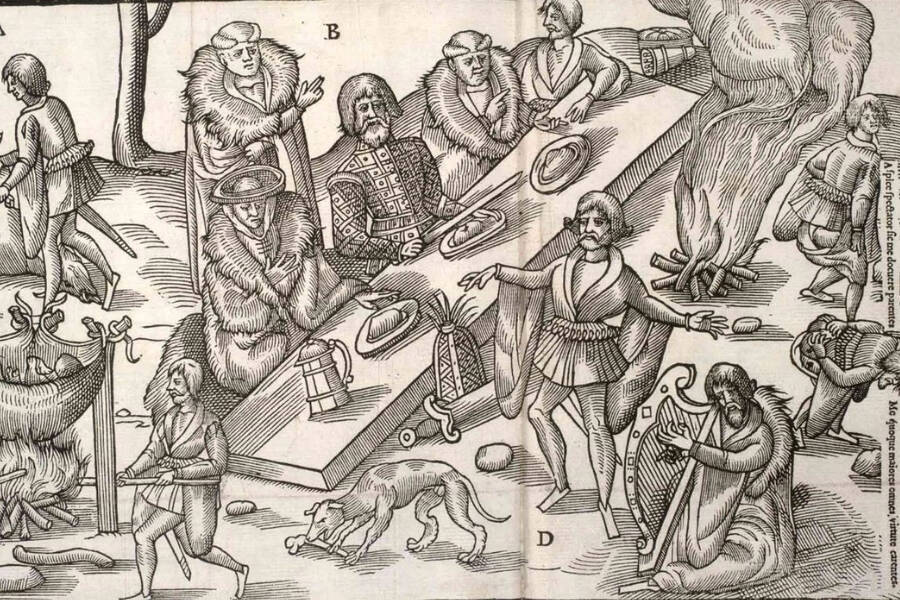Jesters played an important role in entertaining royal courts throughout Europe from the Middle Ages through the Renaissance — but their lives weren't always fun and games.
Historically, royal courts were made up of the lords, ladies, clergymen, bodyguards, and other nobility who attended kings and queens. However, there were other members of a monarch’s household who played an equally important role: jesters.
Court jesters entertained royals and their guests in various ways. From slapstick humor to philosophical conversations, these fools were multi-talented — and they were often rewarded handsomely for their dedicated service.
But of all the jesters throughout history, there are a few whose comedic exploits were so renowned that their names have gone down in the annals of comedy.
From Triboulet to Archy Armstrong, these are the most famous jesters of all time.
Roland The Farter, The Medieval Flatulist Of King Henry II

Public DomainFarting has been used for comedic effect since at least the 12th century.
Little is known about Roulandus le Fartere — also known as Roland the Farter — other than that he was certainly a real person, most likely worked as a jester for King Henry II of England, and received a hefty payment for his comedic services.
As author Valerie Allen detailed in her book On Farting: Language and Laughter in the Middle Ages, Roland the Farter provided entertainment for the English king Henry II. He likely worked for the monarch year-round, but his services were particularly in demand during the Christmas season.
It was during the winter holidays each year that Roland would perform his most famous feat: “unum saltum et siffletum et unum bumbulum” — a jump, a whistle, and a fart. The king and his honored guests found the jester’s routine so humorous that Henry rewarded Roland with a manor and 30 acres in Suffolk in 1159.
Roland’s lands were technically awarded to him as a “serjeanty,” meaning the gift was conditional upon him providing a specific service to the monarch. The unfortunate side of this was that if the king — or the king’s predecessor — decided that Roland was no longer upholding his end of the bargain, his manor could be taken from him.
However, Roland the Farter was so talented when it came to his specific skill set that he seems to have escaped this particular fate. Records show that after the fool’s death, Hemingstone Manor passed to his son, Hubert, and later on to his grandson, Jeffery.
As such, the flatulent jester certainly left behind an impressive legacy.





